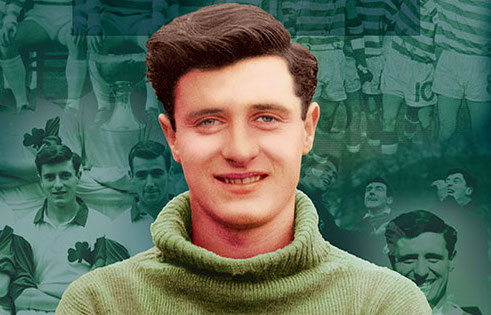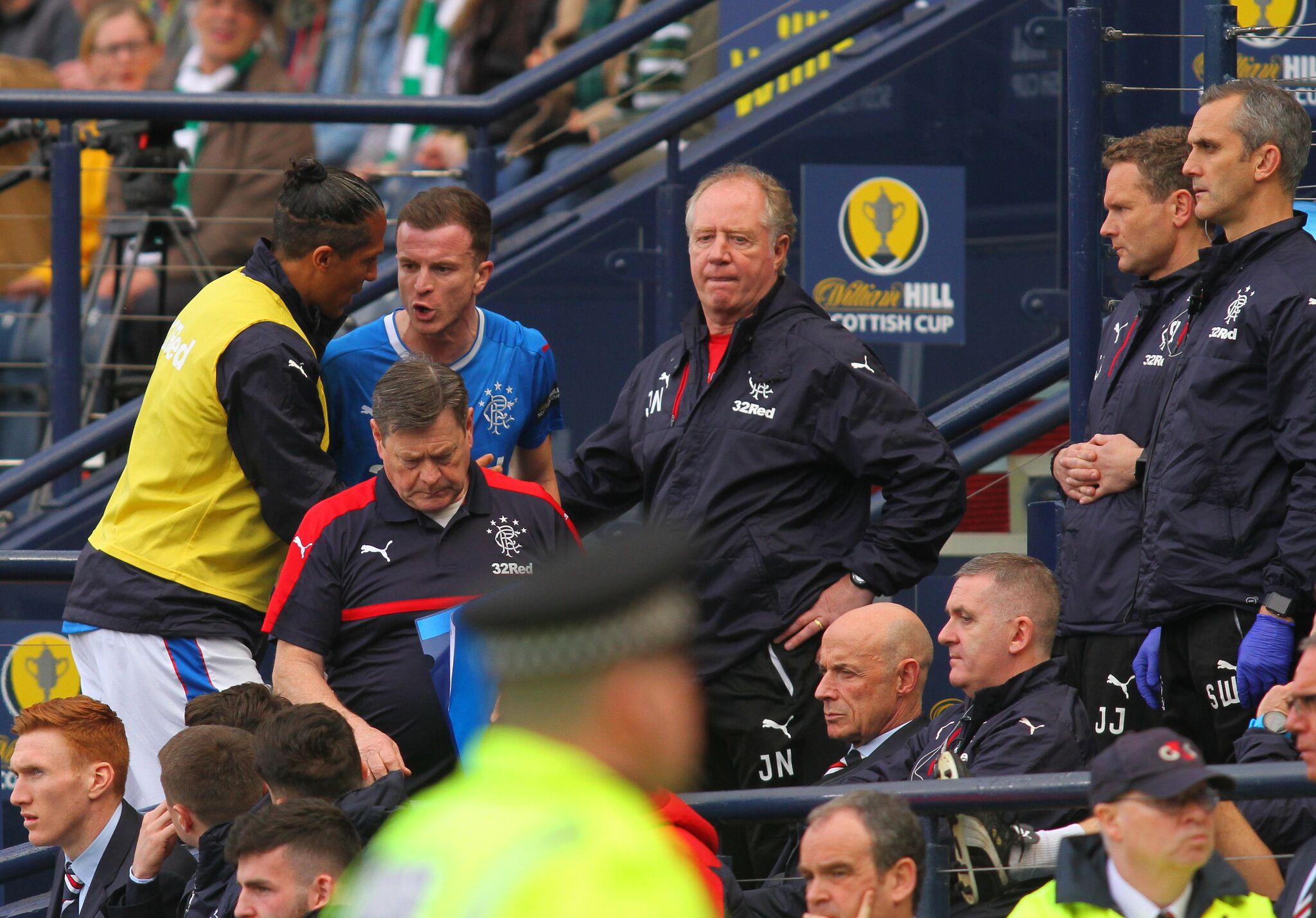Certainly, if what Stein was reputed to have said about wanting rid of Charlie Gallagher along with Jimmy Johnstone and John Hughes is true, we have to face facts and point out that he did NOT actually do it. He may have SAID it (although never in public) but he certainly did not DO it. Charlie may have been heading for the exit in summer 1965 along with men like Hugh Maxwell and John Divers (who survived summer 1965 but not summer 1966) but he saved himself, in Stein’s eyes, by a fine performance in a few games, notably the Wednesday night of 31 March when he starred in the replay of the Scottish Cup semi-final against Motherwell.
Gallagher had been brought in on the Saturday but Celtic, with Gallagher still a little nervous and unsure of himself, had been feckless, unimaginative and possibly lucky to get a draw; with Gallagher on song on the Wednesday night, Celtic had booked their final spot soon after half time. Possibly more pointed were the games against Hibs. Without Gallagher, Celtic were well beaten at Parkhead; with Gallagher Celtic “attuning themselves for the Cup final”, beat Hibs (who were still challenging for the Scottish League) 4-0.
His successful Cup final was the high point of his career, and 1965/66 saw him in and out of the team, good enough to win a Scottish League and a Scottish League Cup medal, but noticeably he did not play in the games against Liverpool not the replay of the Scottish Cup final. He had played in the first game, a disappointing 0-0 draw, but Bertie Auld came back for the replay. Gallagher’s silky passes might just have made a difference on that awful night when Celtic, with most of the pressure, failed to breach the Rangers defence, then lost the one goal of the 180 minutes.
Stein certainly considered him worth keeping before and after Lisbon, and Stein’s trust of the player was rewarded in Gallagher’s glorious spring of 1968. But then he was hardly used in 1968/69 even before he went into hospital. In truth, even after Charlie’s complete recovery from his cartilage operation, there was now no way back for Gallagher at Celtic Park. Not only had Tommy Callaghan been bought from Dunfermline, as Stein had said he would, but it was difficult to spot any chink in their armour.

The team was doing remarkably well, it has to be said, lifting a domestic treble in April 1969 and but for one uncharacteristic error from Billy McNeill against AC Milan in a European Cup quarter final, they might have won that trophy as well. Indeed, many people think that the way that the team played in 1968 and 1969 was better than how they did in 1967.
Gallagher was back playing for the reserves by the spring of 1969, a role he accepted in the circumstances, and thus he was not involved in the remarkable month of April 1969 when Celtic, playing devastating football managed to win all three Scottish trophies in one calendar month, including two memorable Cup finals – 6-2 against Hibs in the Scottish League Cup final and then three weeks later 4-0 against Rangers in the Scottish Cup final
On the Tuesday night after Celtic had won the treble, the Reserves made it trophy no 4 for the season as they beat Aberdeen Reserves 2-0 at Hampden in the Scottish Reserve League Cup final. The team is interesting – Wraith, McGrain and Gorman; Dalglish, Connolly and Cattenach; Gallagher, McMahon, Macari, Callaghan and Davidson.
Charlie was back on his old stamping ground of the right wing, the team had two experienced players in Charlie and Tommy Callaghan, a few of the others had played a first team game or two (notably George Connolly who had won the Scottish Cup a few days previously) but most of them were callow youths, clearly learning a lot from Charlie Gallagher. Young Kenny Dalglish, for example, playing at right half, is described as a “carbon copy of Bobby Murdoch”, and there could be no higher praise than that!
Gallagher was retained in 1969 for the following season – although it would have been fascinating to see what would have happened if some English team had shown an interest. Charlie trained hard all over the summer. He was still only 28 and felt that he had a certain amount of football left in him, but he must have felt that his chances of playing first team football for Celtic must have diminished. Harry Hood had also joined the club, Davie Hay was now a first team regular, and there were other men in the queue as well. But he never complained. Indeed he still enjoyed a good standard of living, and he also rather enjoyed playing for the reserves, acting as a kind of mentor to young men like Danny McGrain who continually sang his praises.
In the year of 1970, Celtic did in fact make it to the European Cup final again. This had followed the two games against Leeds United and a distinctly unfortunate Scottish Cup final against Aberdeen in which the refereeing of Bobby Davidson played a disproportionate part in the proceedings. But by the time that the European Cup final was played, Charlie had been given a free transfer. His wife and he made jokes about it, for now there would be loads of time for painting the house!
But before that happened, a weird event occurred. Sometime in early 1970 when it was obvious that Charlie would probably not get back into the Celtic side, however well he played in the reserves, Stein told him one day that there was a Manager of a “north of England club” wanting to talk to him. Stein refused to say who it was, but gave Charlie an address of a disused warehouse in the Manchester area so that he could go and talk to the Manager concerned.
Charlie duly travelled down to the place concerned and waited for the man to appear. He had a long wait and no-one turned up. An hour or two passed, and eventually Charlie gave up and headed home. He told Stein about it the following day, but Stein just shrugged his shoulders and still would not tell Charlie who the Manager was nor which team he represented. Charlie heard no more about it!
What was behind this? Was Stein sufficiently insecure and vindictive to send Gallagher on a fool’s errand of this nature? If so, it reveals an almost sadistic side of Jock’s nature which we find hard to accept. Many other
players will testify to the vindictive side of Stein’s character, but would he go so far and be so nasty as to do something as bizarre as all that? Yet if not, and if Jock was simply wanting rid of Gallagher, why did he not tell
him who the Manager was? He might have earned the club some money instead of simply giving him a free transfer. The truth of this strange matter will never be known.







For someone who was only a small child in late 60s this has been an education for me. Thank you David.